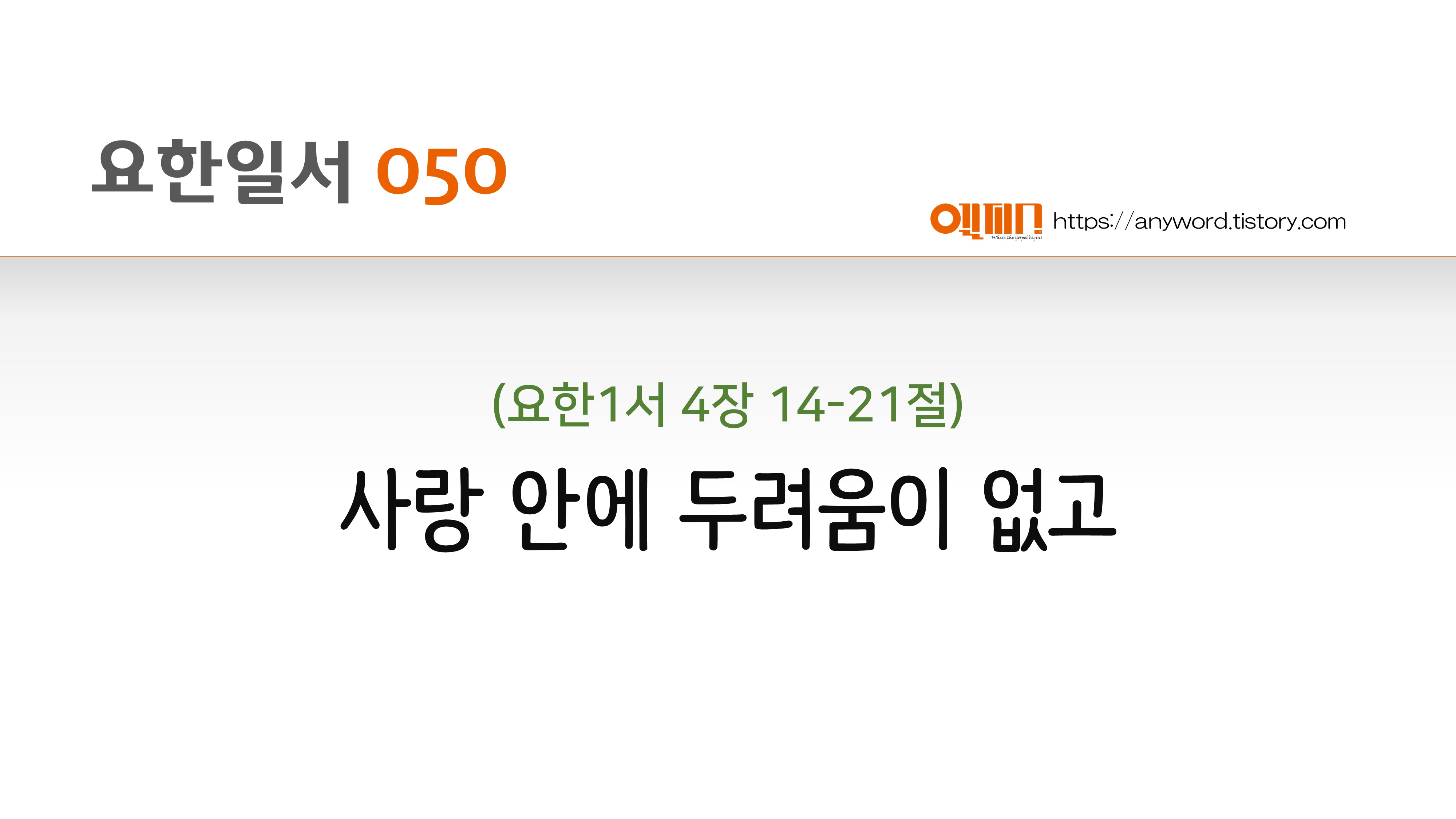'미디어 말씀 파일 > 요한1서_오디오' 카테고리의 다른 글
| 요한1서 052(4:14-21) 하나님을 사랑하는 자, 형제를 사랑하는 자 (0) | 2021.11.23 |
|---|---|
| 요한1서 051(4:14-21) 하나님을 사랑하노라하고 형제를 미워하면 (0) | 2021.11.17 |
| 요한1서 048(4:14-21) 예수를 하나님의 아들이라 시인하면 (0) | 2021.11.08 |
| 요한1서 047(4:11-13) 성령을 우리에게 주시므로 (0) | 2021.11.04 |
| 요한1서 046(4:11-13) 하나님을 본 사람 (0) | 2021.11.01 |


